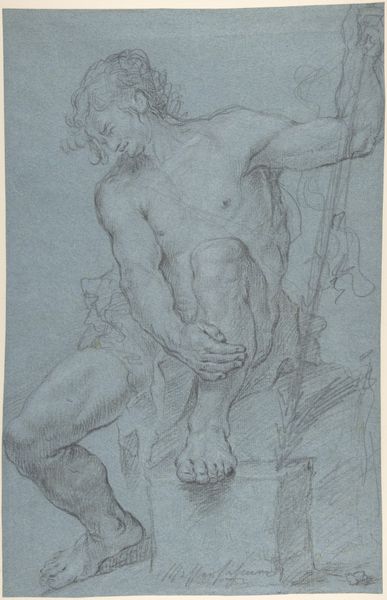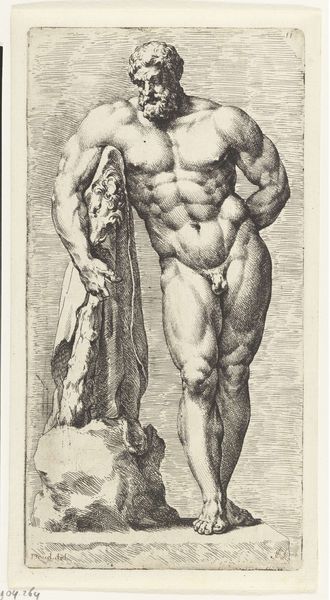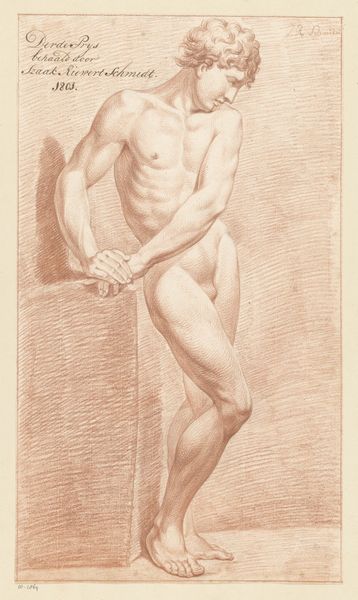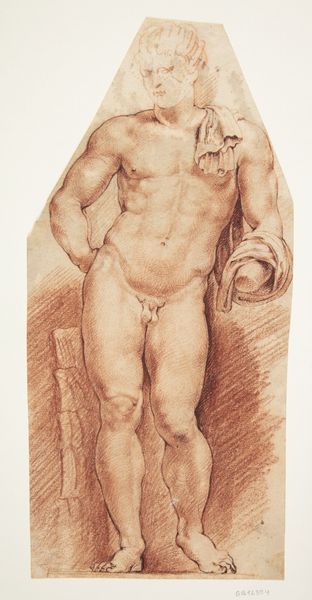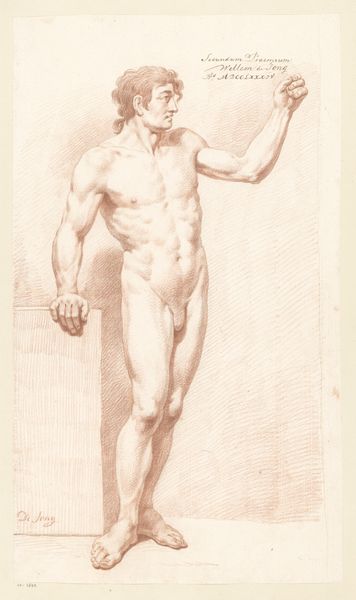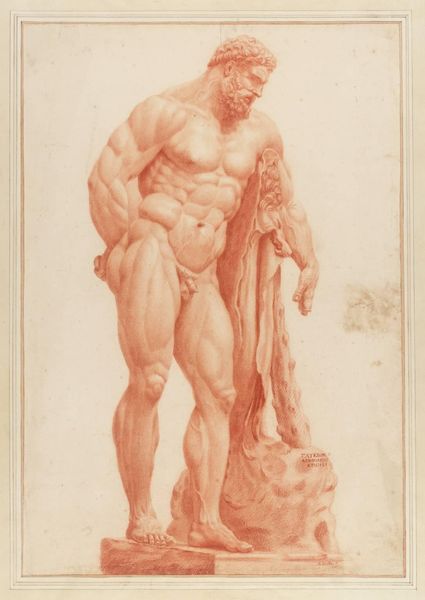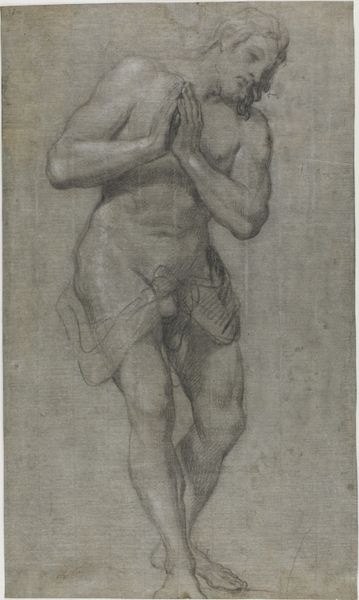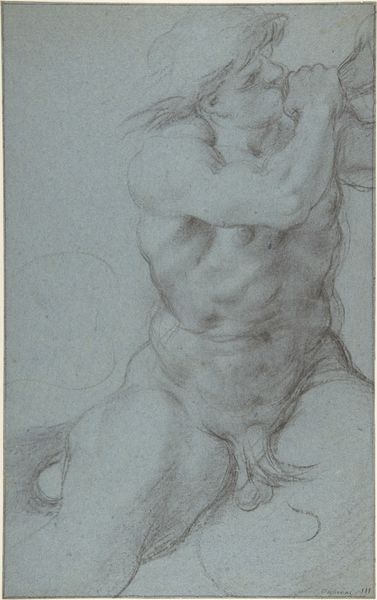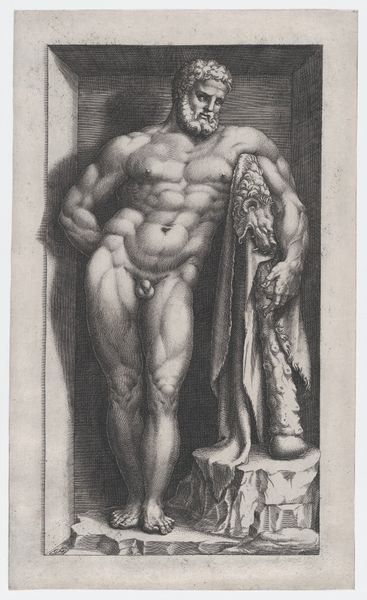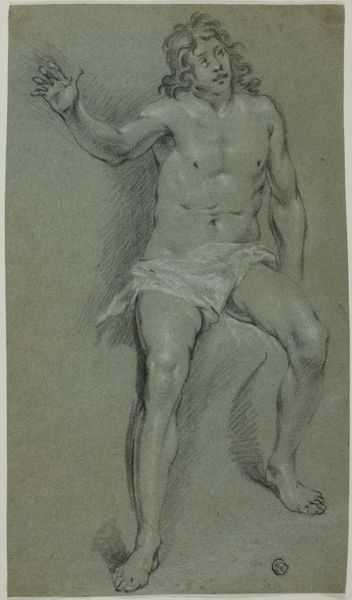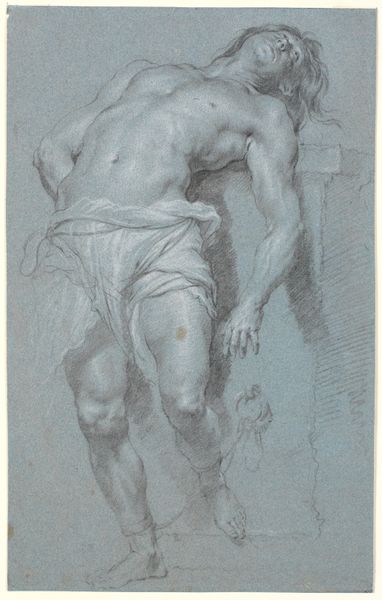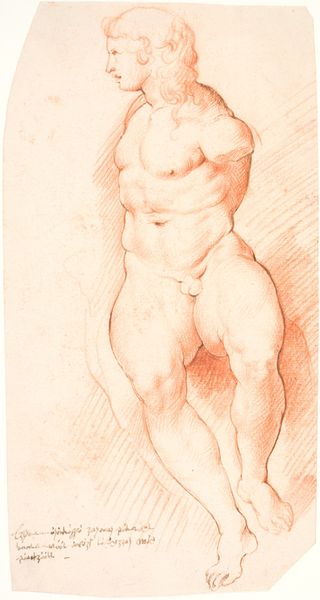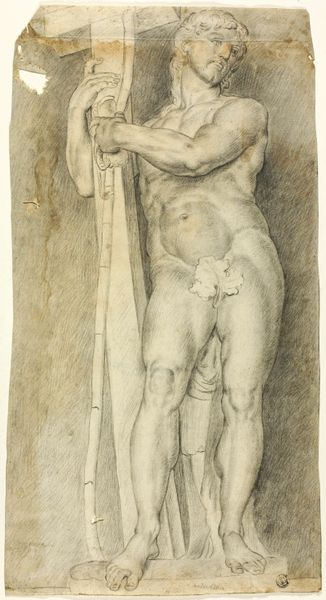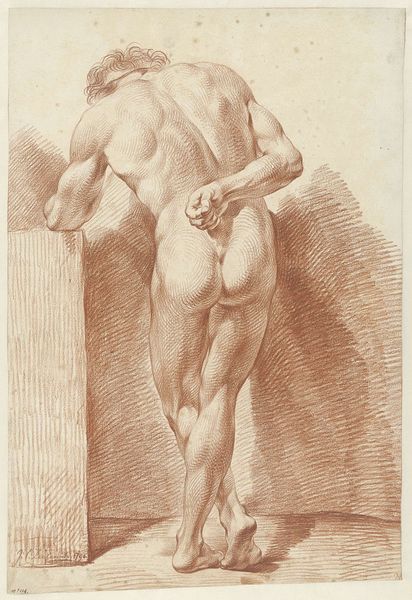
drawing, print, pencil
#
pencil drawn
#
drawing
# print
#
pencil sketch
#
classical-realism
#
figuration
#
form
#
11_renaissance
#
pencil drawing
#
pencil
#
line
#
history-painting
#
academic-art
#
italian-renaissance
#
nude
Dimensions: sheet: 16 3/4 x 10 7/16 in. (42.6 x 26.5 cm)
Copyright: Public Domain
Editor: Here we have Peter van Lint’s "The Farnese Hercules," created around 1639. It’s a pencil drawing or print, focusing on the male figure. What strikes me is how much the muscular form dominates the composition. What do you see in this piece from a historical perspective? Curator: Well, the image itself reproduces a Roman marble sculpture, a renowned artwork in its time. It's interesting to consider how the *reproduction* of classical forms like this drawing circulated. It speaks to the authority that classical antiquity held during the Renaissance and Baroque periods. It wasn’t simply about admiring the physique, but also about connecting to a perceived golden age and power structure. Think about who had access to these images and the sculptures they represent. Editor: So, access was key to upholding that authority? Was this artwork for a select group? Curator: Precisely. Prints and drawings like this often served as learning tools for artists, a means of disseminating knowledge about classical sculpture. But also consider the socio-political implications: the idealization of the male form, the association of power and strength with antiquity…it all contributed to shaping cultural values. How does seeing it as a print influence your perception versus how it might have been seen at the time? Editor: That's interesting. Knowing it was a way of circulating this image changes my perspective; it’s less about the art and more about the power that image held. It also speaks to how art was used to support a particular historical narrative. Curator: Exactly. We’ve moved away from the aesthetics toward its political role and audience. A vital shift in perception.
Comments
No comments
Be the first to comment and join the conversation on the ultimate creative platform.
